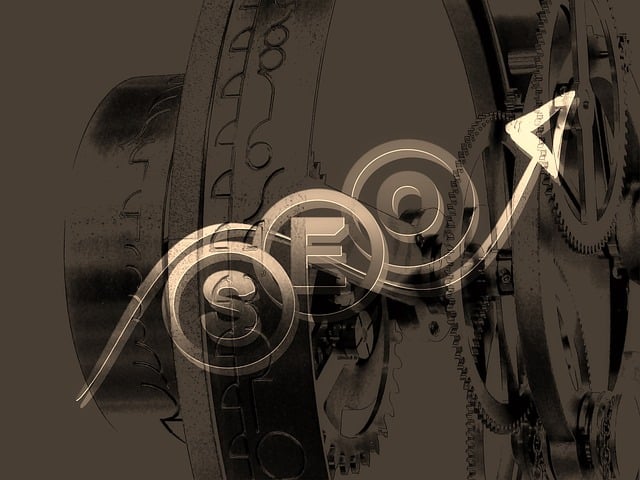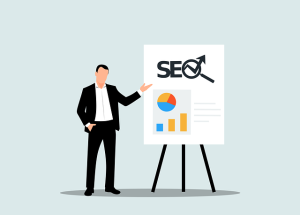E-commerce SEO presents unique challenges like vast product catalogs and high competition. An SEO Agency for E-commerce Websites overcomes these by employing strategies such as structured data, rich snippets, and schema.org implementations to boost visibility and drive organic traffic. They optimize user experience through navigation improvements, faster load speeds, high-quality content, and seamless interactions, enhancing conversions and repeat business. Keyword research targets specific customer queries using advanced tools, focusing on long-tail keywords for higher conversion rates. On-page optimization includes optimizing titles, meta descriptions, headings, images, and content to boost rankings. Off-page SEO involves building quality backlinks from reputable sources to strengthen site authority and visibility. Technical SEO ensures site speed, mobile responsiveness, and reliability, leading to better search engine rankings and increased organic traffic. KPI measurement tracks key metrics like conversion rates, AOV, bounce rate, session duration, and return visitors for data-driven optimization decisions.
E-commerce websites face unique SEO challenges, from optimizing product listings to building brand authority. As a leading SEO agency specializing in e-commerce, we understand these intricacies and how they impact search engine rankings. This article guides you through the key aspects of expert SEO for e-commerce, including keyword research strategies, on-page optimization tactics, off-page link building, technical considerations, and measurable KPIs. By implementing these best practices, businesses can drive more traffic, boost sales, and outpace competitors in today’s digital marketplace.
Understanding E-commerce SEO: Unique Challenges and Opportunities

E-commerce SEO presents a unique set of challenges and opportunities for online businesses. Unlike traditional websites, e-commerce platforms deal with vast product catalogs, dynamic content, and high competition for relevant search terms. Each product page becomes a mini-website in itself, requiring optimization at every level, from individual product titles and descriptions to overall site structure and user experience. Moreover, e-commerce sites often face the challenge of demonstrating product authenticity and trustworthiness in a digital space, which is crucial for converting browsers into buyers.
However, these challenges also open doors to significant opportunities. An SEO agency specializing in e-commerce websites can leverage powerful strategies like structured data markup, rich snippets, and schema.org implementations to enhance search visibility and provide valuable product insights to potential customers. By optimizing navigation, improving page load speeds, and creating high-quality, keyword-rich content, these agencies can drive organic traffic, boost sales, and foster a seamless user experience that keeps shoppers engaged and returning for more.
Keyword Research for E-commerce: Finding the Right Products and Customers

Keyword research is a vital step in optimizing any e-commerce website, and it’s particularly crucial for attracting the right customers to your online store. As an SEO agency dedicated to e-commerce, we understand that identifying relevant keywords and phrases isn’t just about finding popular search terms; it’s about uncovering the specific language your target audience uses when looking for products like yours. This involves delving into industry-specific terminology, brand names, and even regional variations in search queries.
By employing advanced tools and techniques, we help e-commerce businesses navigate the vast sea of keywords to discover high-value, low-competition terms. These long-tail keywords can precisely match customer intent, leading to higher conversion rates. For instance, instead of targeting a broad term like “shoes,” we might suggest focusing on “best running shoes for beginners” or “women’s casual slip-on sneakers.” Such specificity ensures that your website ranks highly when potential customers search for these more nuanced queries, bringing you closer to connecting with those genuinely interested in your products.
On-Page Optimization: Optimizing Product Pages for Better Rankings

In the competitive landscape of e-commerce, an SEO agency for E-commerce websites plays a pivotal role in driving organic traffic and sales. One of the key strategies is on-page optimization, particularly focusing on product pages. This involves optimizing essential elements like titles, meta descriptions, and headings to ensure they are not only engaging but also rich in relevant keywords. A well-optimized product page not only improves search rankings but also enhances user experience, encouraging visitors to explore further and increase the likelihood of conversions.
Additionally, high-quality, optimized images with alt tags, along with concise yet descriptive content, can significantly boost a product page’s SEO. Regularly updating product descriptions to include the latest trends and customer reviews can also attract search engines and potential customers alike. By implementing these on-page optimization techniques, e-commerce businesses can ensure their websites are not only visible but also trustworthy in the eyes of both users and search engine algorithms.
Off-Page SEO for E-commerce: Building Quality Backlinks and Brand Authority

Off-Page SEO is a crucial strategy for e-commerce websites, focusing on external factors that impact search rankings. One of the key aspects is building quality backlinks from reputable sources. These backlinks act as votes of confidence in the eyes of search engines, signaling that your site provides valuable content and resources. When an established SEO agency for e-commerce websites partners with relevant brands, influencers, or industry leaders to earn these backlinks, it significantly boosts the site’s authority and visibility.
Moreover, off-page SEO helps establish brand authority and trustworthiness. By consistently engaging in high-quality content creation and earning mentions from authoritative sites, your e-commerce platform becomes a go-to resource for your target audience. This not only drives organic traffic but also fosters long-term customer relationships. An SEO agency can guide this process by identifying the right platforms and influencers to collaborate with, ensuring that each backlink is strategic and contributes to the overall growth of brand authority.
Technical SEO Considerations for Enhanced User Experience and Search Engine Visibility

For an e-commerce website to achieve maximum visibility and drive sales, a robust Technical SEO strategy is paramount. A top-tier SEO Agency for E-commerce Websites understands that addressing technical aspects enhances user experience and search engine rankings. This includes optimizing site speed, ensuring mobile responsiveness, implementing structured data markup for product information, and creating XML sitemaps to help search engines efficiently crawl and index pages.
Additionally, a focus on secure connections (HTTPS) and leveraging browser caching can significantly improve load times. These technical optimizations not only make the website more user-friendly but also signal to search engines that the site is reliable and trustworthy. As a result, e-commerce sites benefit from higher rankings, increased organic traffic, and improved conversion rates.
Measuring Success: Key Performance Indicators (KPIs) for E-commerce SEO

Measuring success is a critical aspect of any digital marketing strategy, especially for e-commerce websites. When it comes to SEO for e-commerce, defining key performance indicators (KPIs) allows businesses and SEO agencies to track progress, identify areas of improvement, and ultimately optimize their online presence effectively. These KPIs should go beyond mere traffic volume; they must align with the primary goals of the e-commerce platform. For instance, a significant KPI for an e-commerce website could be conversion rate – the percentage of visitors who make a purchase. This metric is paramount as it directly impacts revenue and customer acquisition.
Additionally, SEO agencies for e-commerce websites should monitor metrics like average order value (AOV), bounce rate, session duration, and return visitors. A high AOV indicates that customers are spending more per transaction, which is a positive sign. Meanwhile, a low bounce rate suggests that the website’s content and design effectively engage users. Longer session durations imply that visitors are exploring products in detail, while repeat visitors demonstrate loyal customer engagement. By analyzing these KPIs, SEO experts can make data-driven decisions to refine search engine optimization strategies, ensuring the e-commerce site attracts the right audience, converts them into customers, and fosters long-term business growth.
